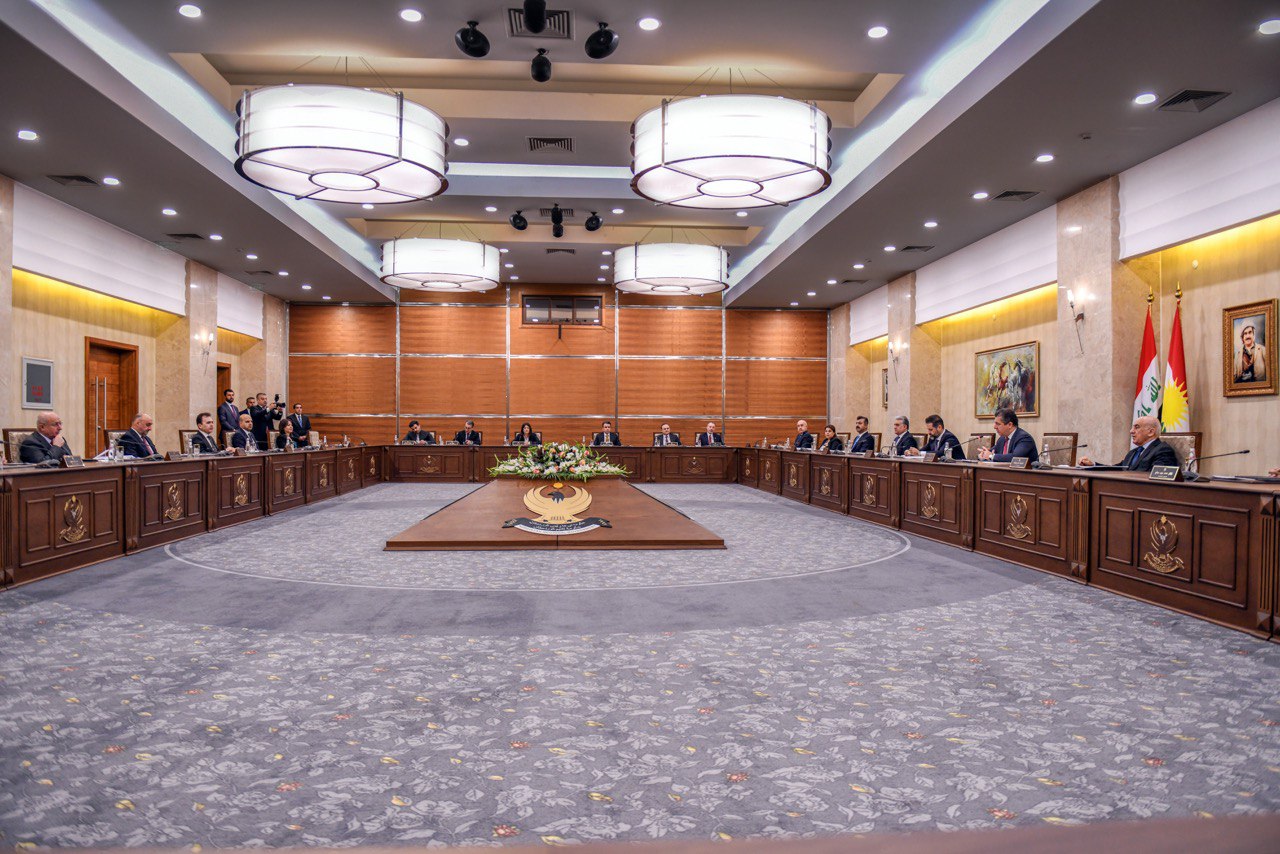KRG to discuss resumption of halted Kurdistan Region oil export

ERBIL (Kurdistan 24) – The Kurdistan Regional Government (KRG) Council of Ministers is set to discuss the resumption of the Kurdish oil export, which has been halted for over six months.
The weekly cabinet session will be led by Prime Minister Masrour Barzani in the presence of Deputy Prime Minister Qubad Talabani in Erbil, according to a statement from the council.
The ministers are also set to discuss the ongoing auditing process of Kurdish civil servants’ salaries that are currently undertaken jointly by the Region’s administrative teams as well as those in Baghdad, per the statement.
The export has been halted since March 25 at the request of Baghdad after Iraq claimed victory against Turkey at the International Chamber of Commerce’s Court of Arbitration for allowing the KRG to independently export its oil.
However, the Turkish energy minister last week announced that the pipeline is ready for export, but the crude flow has yet to restart. A top Iraqi diplomat on Thursday said Ankara had agreed to resume the export.
Baghdad and Anakra are reportedly in discussion over the payment of $1.5 billion the court awarded to Iraq as a result of damages it had suffered.
Turkish officials have also asked Iraqi counterparts to drop the remaining court cases against Ankara on the energy dispute, according to media reports.
Kurdistan Regional Government (KRG), Turkey, and Iraq have participated in several rounds of negotiations since then to resume the export, whose loss is estimated to be nearly $6 billion.
Oil companies and a number of countries, including the US and Russia, have previously called for the resumption of oil exports.
Prior to the halt, the Kurdish region was independently exporting 450,000 barrels of oil per day through the pipeline, which was also sending another 100,000 barrels of Iraqi oil from Kirkuk Province.
In order for the Kurdistan Region to receive a 12.6 percent share of Iraq’s budget annually, it has to sell 400,000 barrels of oil per day via SOMO, per the country’s budget law.
